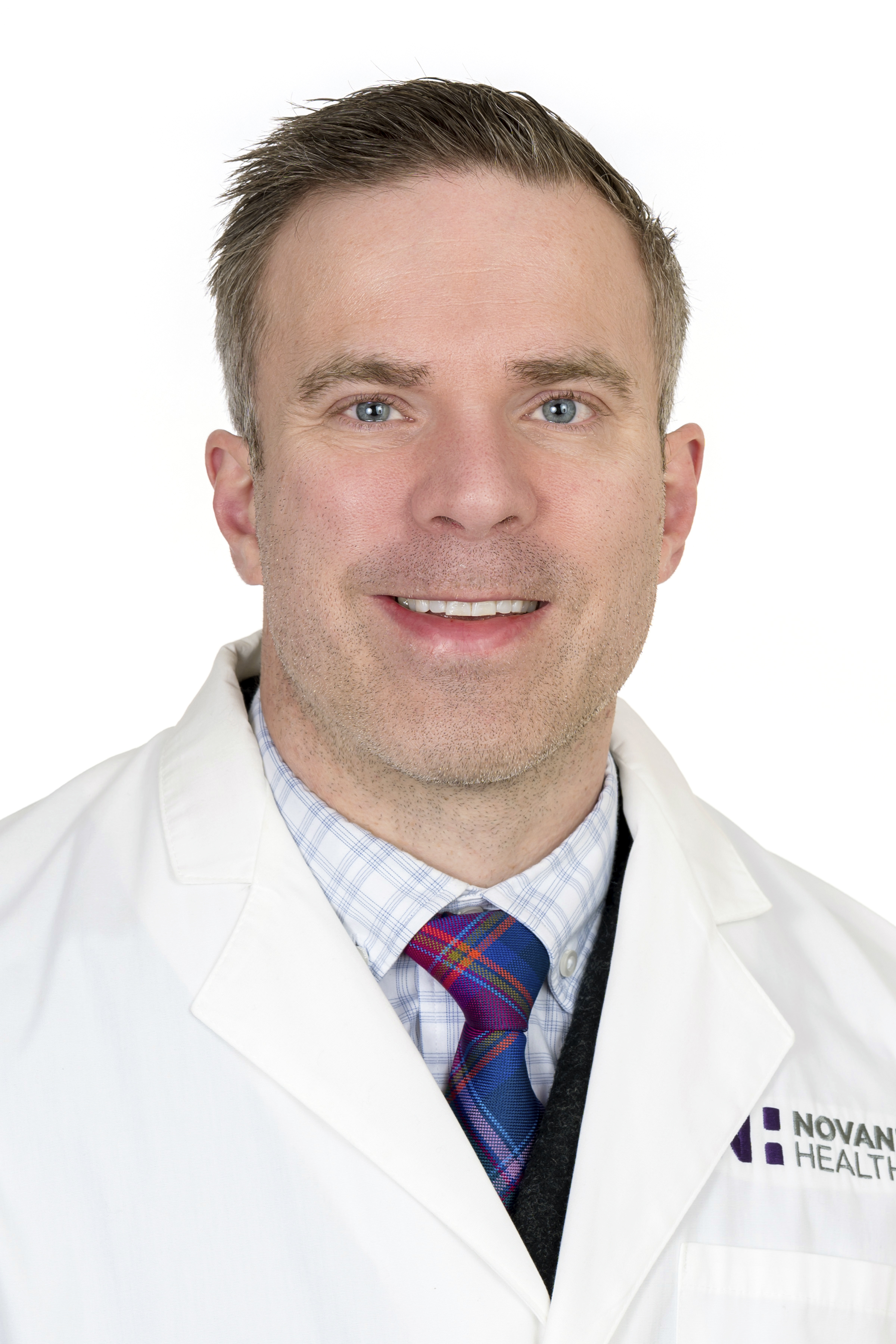Heart disease is the leading killer of women and men in the U.S., responsible for more than 700,000 deaths each year.
But there’s hope – and help – for patients in the Triad, where Novant Health is providing customized, leading-edge cardiac care.
Novant Health’s largest facility, Novant Health Forsyth Medical Center, has opened a new tower focused on cardiac conditions, added new expert physicians and expanded specialty care with innovative therapies. It’s world-class care, right in the Winston-Salem area.
Customized treatment strategies for heart failure
Heart failure develops in 1 in 4 people, and gets its name from the heart’s failure to pump a sufficient amount of blood to the body. It can be caused by:
- coronary artery disease
- high blood pressure (hypertension)
- diabetes
- cardiomyopathy (heart-muscle disease)
When a patient develops heart failure, they often assume the worst. But Hassan Alhosaini, MD, medical director for advanced heart disease and pulmonary hypertension, warns of misconceptions.

“I want to help my patients understand their disease, work with them to develop a treatment strategy, and give them as much hope as possible,” Alhosaini said. “They’re going through a vulnerable phase, but they can certainly learn how to live and cope with heart failure.”
In 2024, Novant Health Heart & Vascular expanded care to a new location on Frontis Plaza Boulevard in Winston-Salem. The outpatient facility houses specialized care for individuals experiencing:
- cardiomyopathy
- pulmonary hypertension
- heart failure
Within the same location, patients can undergo an assessment and diagnostic testing for advanced heart disease and pulmonary hypertension. The clinic also offers infusion services for patients, using diuretic therapy to help prevent overnight hospital stays.
Procedures to restore heart health, without surgery
General cardiologists offer a series of noninvasive tests to evaluate heart health and risk and inform next steps for medical treatment. These include:
- Electrocardiograms, which measure the heart’s electrical activity
- Stress tests, which monitor the heart’s response to exercise
- Echocardiograms, which ultrasound the heart and valves
Cardiac catheterization is one of the most common heart procedures and is minimally invasive. An interventional cardiologist uses a catheter to locate and open blocked coronary arteries with a balloon or stent to reduce chest pain. Catheterization also allows the cardiologist to check pressure in the heart’s chambers and identify any defects.
When you want the most advanced treatment options
For patients with the most complex cardiac needs, Forsyth Medical Center offers highly specialized, lifesaving therapies. “I am very optimistic about the great technological advancements that enable us to offer advanced heart failure treatment options for patients who are unable to have conventional medical therapy, ” Alhosaini said. Specialized treatment options include:
- Artificial heart pump: an alternative to a high-demand heart transplant.
- Pacemaker: an implant that delivers electrical pulses to the heart, ensuring normal rate and rhythm.
- Cardiac defibrillator: a battery-powered tracker implanted to restore heartbeat.
- LVAD: a left ventricular assist device implanted while the patient is connected to a ventilator and a heart-lung bypass machine. About half of advanced heart failure patients are eligible.

While an LVAD does not cure end-stage heart failure, it can help patients live for several more years, said Jesse Madden, MD, of Novant Health Cardiothoracic Surgeons in Winston-Salem. “It’s a dramatic improvement in the length and quality of life.”
Madden was the first doctor to offer LVAD in Western North Carolina, and in 2025 he brought the procedure to Forsyth Medical Center.
- CardioMEMS: a smart device that remotely monitors heart failure.
The Food and Drug Administration approved the technology in 2022 for expanded use in at-risk heart failure patients. The implant, no bigger than a paperclip, remotely tracks a patient’s heart activity and often avoids the need for hospital admission.
“Heart-failure monitoring via CardioMEMS is a lot like monitoring a river gauge to prevent a flood,” Alhosaini said. “The sensor allows us to receive daily lung-pressure readings to determine whether the patient’s cardiac function is worsening.”
The technology also enables doctors to adjust medication and identify early signs of heart disease progression.
Novant Health’s multidisciplinary team gives heart patients hope for recovery and successful health outcomes. The team includes heart failure surgeons and nurses, physician assistants, pharmacists, nurse coordinators and social workers.
“There is always a prospect for considerable improvement in heart function,” Alhosaini said. “Our numerous treatment options have been shown in clinical trials to improve cardiac function, quality of life and survival.”
Patients interested in scheduling an appointment at one of our heart and vascular care locations can visit NovantHealth.org/Heart.










